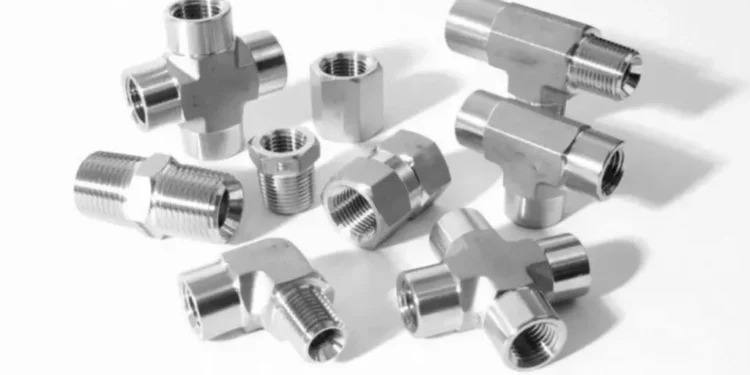As an industry professional in the field of plumbing, understanding the intricacies of wholesale fittings is crucial for the success of your business. Whether you are involved in residential, commercial, or industrial projects, the knowledge of how to source and utilize fittings effectively can make a significant difference in the quality of your work and the efficiency of your operations. This article will serve as a comprehensive guide for mastering wholesale fittings.
Understanding Wholesale Fittings
Wholesale fittings are a fundamental part of the plumbing industry. They include various types of connectors, such as elbows, tees, couplings, and valves, which are used to join pipes and tubes in a plumbing system. These fittings are mass-produced and sold in large quantities, which allows industry professionals to purchase them at a lower cost compared to retail prices.
Importance of Quality and Precision
Quality and precision in wholesale fittings cannot be overstated. High-quality fittings ensure that plumbing systems are secure, leak-proof, and durable. Precision-engineered fittings provide a perfect fit, essential for avoiding costly leaks and repairs down the line. Choosing a reputable manufacturer known for their meticulous attention to detail is paramount.
Materials Used in Fittings
Fittings are made from various materials, including brass, PVC, copper, and steel. Each material has its advantages and applications, depending on the project requirements. Brass fittings, for example, are popular for their durability and corrosion resistance, making them suitable for both hot and cold water applications.
Selecting the Right Wholesale Fittings Supplier
Selecting a dependable wholesale fittings supplier is a critical decision. A good supplier should offer a broad range of high-quality products, competitive pricing, and excellent customer service. They should also provide technical support and be knowledgeable about the latest industry trends and standards.
Benefits of Sourcing Wholesale
Sourcing wholesale fittings offers numerous benefits for plumbing professionals. Apart from the cost savings, buying in bulk can ensure that you have a consistent supply of necessary components on hand, reducing downtime and improving project turnaround times.
Assessing Supplier Reliability
To assess a supplier’s reliability, look into their track record, customer reviews, and the quality of their products. Check if they have certifications or endorsements from industry associations. This due diligence will help you find a partner you can trust for long-term business relations.
Best Practices for Inventory Management
Effective inventory management of wholesale fittings is crucial for maintaining productivity. It requires a balance between having enough stock to meet demands and avoiding excessive inventory that ties up capital. Implementing smart inventory solutions and possibly leveraging automated systems can be beneficial in maintaining this balance.
Leveraging Technology
The use of technology, such as inventory management software, can streamline the process of tracking stock levels, forecasting demand, and placing orders with suppliers. This digital approach can save time and reduce errors in managing your fittings inventory.
Maintaining Quality Control
While managing inventory, it’s essential to have a robust quality control system. The consistent inspection of your fittings stock ensures that any subpar components are identified and addressed promptly, thereby maintaining the overall standard of your projects.
Training and Knowledge Sharing
Another critical aspect of mastering wholesale fittings is to provide ongoing training for your team. Keeping your workforce informed about the properties and applications of various fittings, as well as best handling and installation practices, is invaluable.
Staying Updated with Industry Advances
The plumbing industry is dynamic, with continuous advances in materials and technologies. Staying updated on these developments ensures that your business can adapt and offer the most current and efficient solutions to customers.
Collaborative Learning
Encouraging a culture of collaborative learning within your team can help in disseminating knowledge and skills efficiently. This collective effort often leads to innovative problem-solving and improvement in workmanship.
Eco-friendly Options
As sustainability becomes increasingly significant, it is important for professionals to consider eco-friendly options in wholesale fittings. Environmentally conscious choices can not only enhance your company’s green credentials but also meet the growing demand for sustainable building practices.
Recycling and Upcycling
Engaging in recycling and upcycling practices for fittings can minimise waste and contribute to a circular economy within the plumbing sector. It also reflects a company’s commitment to responsible resource management.
Introducing Green Alternatives
Exploring and introducing green alternatives to traditional fittings materials can set your business apart and cater to clients who are keen on reducing their carbon footprint. This proactive approach may also open up new market segments for your business.
Conclusion
Mastering the usage of wholesale fittings is an ongoing process that involves a keen understanding of quality, an excellent supply chain, apt inventory management, continuous training, and an eye towards sustainability. By focusing on these areas, plumbing professionals can optimise their operations, reduce overhead costs and offer superior service to clients. As the industry evolves, those who adapt and embrace innovation, like working with trusted suppliers such as the providers of wholesale fittings, are certain to stand out in the competitive plumbing landscape.






